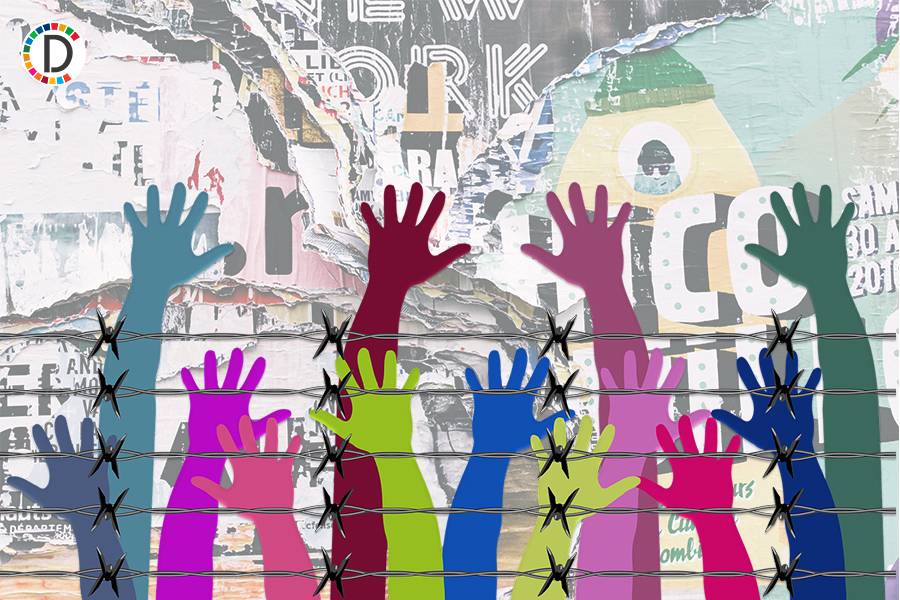Party of Estonian PM, strong Ukraine backer, gains big win

Voters in Estonia elected a new parliament on Sunday with initial results suggesting the centre-right Reform Party of Prime Minister Kaja Kallas. one of Europe's most outspoken supporters of Ukraine, had won overwhelmingly with nearly all votes counted.
Kallas faced a challenge from the far-right populist EKRE party, which seeks to limit the Baltic nation's exposure to the Ukraine crisis and blames the current government for Estonia's high inflation rate.
Nine political parties in all fielded candidates for Estonia's 101-seat parliament, or Riigikogu. Over 900,000 people were eligible to vote in the general election, and nearly half voted in advance.
With 99 per cent of votes counted, Reform Party had taken 31.4 per cent of the votes, followed by EKRE with 16.1 per cent and the Centre Party, traditionally favoured by Estonia's sizable ethnic-Russian minority, 15 per cent.
''This result, which is not final yet, will give us a strong mandate to put together a good government,'' Kallas told her party colleagues and jubilant supporters at a hotel in the capital, Tallinn.
''I think that with such a strong mandate, the (aid to Ukraine) will not change because other parties, except EKRE and maybe Centre, have chosen the same line,'' she said.
Preliminary results suggested six parties passed the 5 per cent threshold of support needed to be in parliament, including newcomer Eesti 200, a liberal centrist party. Voter turnout was 63.7 per cent, according to initial information.
The initial results mean the Reform Party is in a remarkably strong position to take a leading role in forming Estonia's next government; its support translates into 37 seats in the legislature. But it will need junior partners to form a coalition with a comfortable majority to govern.
Kallas has ruled out being in a government with EKRE due to ideological differences and is likely to turn to former coalition partner the Centre Party and outgoing coalition partners -- the small conservative Fatherland party and the Social Democrats -- for a pact.
Newcomer Eesti 200 is also likely to be included in government talks with Reform.
National security in the wake of neighbouring Russia's invasion of Ukraine and socio-economic issues, particularly the rising cost of living, were main campaign themes.
Kallas, 45, became prime minister in 2021 and has emerged as one of Europe's most outspoken supporters of Ukraine during the year-long war. She is seeking a second term, with her standing enhanced by her international appeals to impose sanctions on Moscow.
A Baltic nation of 1.3 million (13 lakh) people that borders Russia to the east, Estonia broke away from the Soviet Union in 1991 and has taken a clear Western course, joining NATO and the European Union.
Kallas' centre-right Reform Party, a key player in Estonian politics since the mid-1990s, continuously held the prime minister's post during 2005-2016 and regained it in 2021.
EKRE party leader Martin Helme, the prime minister's main challenger, faulted Kallas for the country's inflation rate of 18.6 per cent, one of the EU's highest, and accused her of undermining Estonia's defences by giving weapons to Ukraine.
''We have never questioned support for Ukraine. We have never questioned Estonia's membership in NATO,'' Helme said in an interview with The Associated Press. ''That is just crazy talk. But we have been very critical of the government because they have not assessed the risk to Estonia and to Estonian security and defence.'' ''We have basically given away all our heavy weaponry to Ukraine and the replacement comes within two or three years. Basically, that is an invitation of aggression,'' he said.
The outspoken and polarising EKRE entered into the mainstream of Estonian politics in the 2019 election, when it emerged as the third-largest party with nearly 18 per cent of the vote. The euroskeptic party was co-founded by Martin Helme's father, Mart Helme, and was part of a Centre Party-led government during 2019-21.
Kallas argues it is in her country's interests to help Kyiv. The full-scale invasion of Ukraine sparked fears in Tallinn that a Russian victory could embolden Moscow to switch its attentions to other countries it controlled in Soviet times, including Baltic nations Estonia, Latvia and Lithuania.
She says that Estonia's defences remain strong as the United States and other NATO allies have supplied top-notch weapons like the HIMARS rocket system to Ukraine and also to Estonia.
(This story has not been edited by Devdiscourse staff and is auto-generated from a syndicated feed.)










